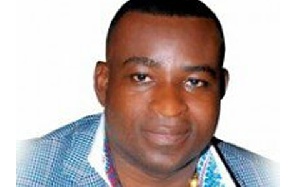Ashanti Regional Chairman of the New Patriotic Party (NPP), Bernard Antwi Boasiako, has asked government to put in place concrete policies that will assist well-meaning religious groups in the country to create jobs for the teeming unemployed youth.
This, according to the NPP chairman, should take precedent over the Mahama-led administration’s consideration of instituting a tax regime against the Christian and Islamic sects.
Affectionately called Chairman Wontumi, Antwi Boasiako said even though the primary objective of the religious bodies are to guide people to receive salvation, they were strategically positioned to create job opportunities for the citizenry.
Reacting to recent calls on government to tax the various religious groups as part of efforts to broaden the tax net and generate more revenue, the Ashanti Regional NPP chairman noted that government would only be justified if it made conscious effort to create the enabling environment for the religious groups to create wealth.
“These religious bodies are strategically positioned to create job opportunities for the citizenry to complement government’s effort in that direction, but this would require support from the government of the day,” he reiterated.
In his view, any attempt to tax the religious bodies at their current state would amount to cutting one’s noise to spice up his face, asserting such a move would amount to nothing.
Chairman Wontumi explained that the religious bodies as non-profit organisations, obtained funds from the poor in society for their activities.
According to him, the teeming unemployed youth, in their quest to find solace and spiritual upliftment for divine intervention in their socio-economic predicament, had found themselves in these religious groups.
“The little contributions which they make are used to implement pro-poor programmes such as hospitals, schools, and water and sanitation projects for the same poor people,” he noted.
Taxing the religious organisations, the NPP chairman, pointed, therefore would mean indirectly taxing the already poverty-stricken unemployed who are mostly present in churches and mosques.
Pitching his argument against the population distribution of Ghana, Mr Boasiako said available statistics showed that about 10 million people were gainfully employed from both formal and informal sectors, out of the potentially employable active labour force of about 18 million from the nation population, leaving a whopping eight million people without job.
He was, however, convinced that with such a specific policy that is aimed at assisting viable religious groups with clear cut business ideas could help in job creation.
Politics of Thursday, 1 May 2014
Source: Daily Guide

















